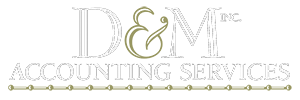Updated June 2018
The dreaded five letter word…. AUDIT….
Something many of us fear and have thankfully never experienced. Those that have, well, tell us your story. What was it that triggered the IRS to come knocking to make sure you were telling the whole truth and nothing but? The more money you make, the more likely you are to be audited…
Here are a few reasons why you may be targeted for a small business tax audit, especially if you’re making a good chunk of money.
 Typos
Typos
This might seem like a silly thing, but double check your work or make sure you have an accountant that is very careful with the work they do (sometimes your accountant can be to blame for your audit). Always check over deductions and the math before you send it away.
Home Office Deduction
This is becoming more and more popular with the growing number of small businesses and self-employed individuals. There’s no need to skip this just to avoid an IRS audit, you just need to be able to prove that this portion of your home is truly used for business purposes only, including the percentage of utility bills and homeowner’s association fees. Measure out the square footage that is used for your business to be as accurate as possible just in case something looks funky in the eyes of the IRS.
Unusual Levels of Charitable Donations
While giving to charity is one of the most amazing things a business owner can do, the IRS looks at the national averages of charitable giving based on income level. So if you’re giving an unusually high percentage of profits away, this will likely raise a red flag. If you are really giving these high amounts away, make sure to have proper documentation especially for non-monetary donations. The easiest way to give is usually by a handwritten check. And don’t forget to file Form 8283 for anything over $500.
Earned Income Tax Credit (EITC) Claim
False claims of this credit apparently cost the government billions of dollars every year, so if you’re claiming this, double and triple check that you actually qualify. Those that do claim it are twice as likely to be audited. Another thing, people who claim no adjusted gross income will also be looked at a bit closer.
Filing a Paper Return
Digital days are here to stay, and filing digitally also creates errors only 0.5% of the time compared to 21% for paper returns. Avoid the “closer look” pile and file electronically.
Reporting a Massive List of Schedule C Losses
If you’re self employed, reporting a loss is expected for new businesses, but losses that become ongoing will likely be questioned. Ensure you have a profit for three of the last five years to be safe. Any business that reports a loss for five years will be considered a hobby and you’ll be stuck with the taxes.
Claiming Many, Many “Business Expenses”
While there are plenty of things that can be written off legitimately, it’s tempting to stretch the limits of what is really legitimate. Ensure the IRS’s idea of “ordinary and necessary” match your definition.
For example, buying tax software if you’re an  accountant is absolutely fair, but if you go and buy a boat, sadly that would probably get you into some trouble! Ask yourself if what you’re buying is necessary for you to do your job. Keep in mind new tax laws no longer allow writing off entertainment expenses, just food.
accountant is absolutely fair, but if you go and buy a boat, sadly that would probably get you into some trouble! Ask yourself if what you’re buying is necessary for you to do your job. Keep in mind new tax laws no longer allow writing off entertainment expenses, just food.
If your deductions are completely legitimate and do seem significant compared to your business income, don’t skip them! Just ensure your documentation is fool-proof and accurate.
Using Digital Currencies
As cryptocurrencies become more widely used and accepted, the more the IRS will be looking very closely at whether businesses claim income from them or not. Putting this income under the table can quickly result in massive fines starting at $250K and prison time. This new technology can be a great addition to your business if used correctly (and legally!)
Having Perfect-Looking Numbers
This might sound silly, but if you have poor documentation or sketchy proof of certain business expenses, and the totals round to numbers like $2,000, this might get you a call from the IRS. It’s not often that various income and expenses will round to such an even number.
Simply Owning a Business
 The best income opportunities lie in owning a business, which is exactly why the IRS tends to look at these more closely. There are far more ways to fudge, hide income, and skim profits with cash based businesses. It’s even said that the term “money laundering” came from the practice of the Italian mafia buying laundromats to mix in their illegal income.
The best income opportunities lie in owning a business, which is exactly why the IRS tends to look at these more closely. There are far more ways to fudge, hide income, and skim profits with cash based businesses. It’s even said that the term “money laundering” came from the practice of the Italian mafia buying laundromats to mix in their illegal income.
What to do if you’re being audited? Be honest. Answer questions as quickly as possible, and if you feel you need some help or are asked to meet with an auditor in person, hire a qualified accountant or tax attorney.

